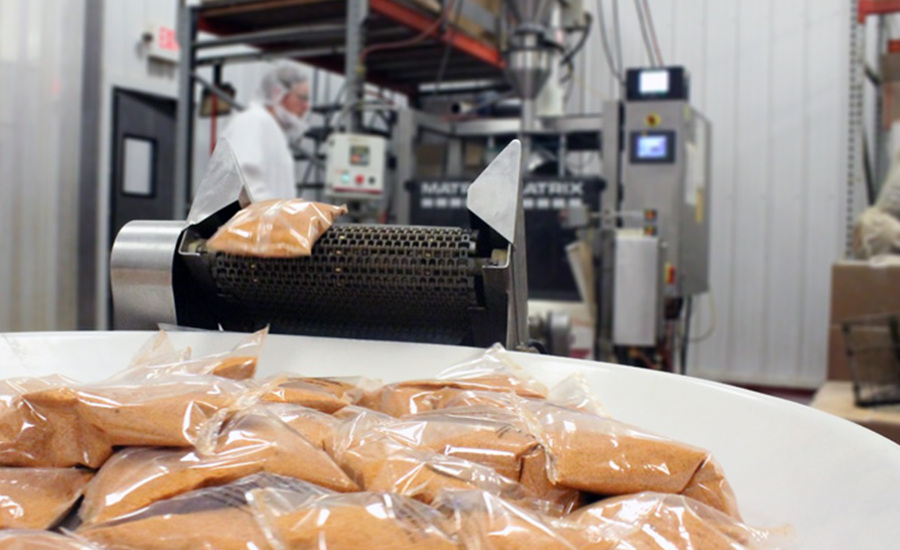In today's diligent customer landscape, the need for fairly sourced and also lasting items has surged. Private label food manufacturers have actually become innovators in this domain, often working together with agreement food manufacturers to spearhead sustainability and responsible sourcing efforts. With an undaunted dedication to ecological ethics, exclusive label brands have made it their mission to supply lasting, premium options to consumers.
Private Label Food Manufacturers
In the last few years, private label food manufacturers, additionally called very own brand names or store brands, have experienced an amazing rise in appeal. These makers generate items offered under the logo design of a store, grocer, or private entity. What sets private-label items apart is their capability to supply competitive prices without endangering on quality.
Contract Food Manufacturers
Many private-label food producers sign up with forces with contract producers to establish their line of product. Contract food makers are specialists in creating foodstuff for private tags. This strategic collaboration enables private label companies to use the know-how, sources, and specialized food manufacturing facilities of their partners.
Sustainability at the Core
Private label food manufacturers employ different methods to enhance sustainability within their supply networks:
Honest Sourcing:
Private label companies are increasingly devoted to sourcing active ingredients according to honest and also fair trade requirements. This requires guaranteeing that producers and also employees of basic materials, such as coffee beans, flavors, or cacao, receive fair compensation for their efforts.
Local Sourcing:
Prioritizing regional sourcing of active ingredients is an additional characteristic of private-label food makers. This not only lowers the carbon impact associated with transportation but additionally supports regional farmers and also neighborhoods.
Organic Ingredients:
With the organic food market rising, personal tags are responding by including natural active ingredients into their line of product. Organic farming practices prioritize soil health and wellness while eschewing synthetic chemicals and plant foods.
Lasting Fish and shellfish:
Private Label Food Manufacturers are attentive in making sure that the seafood they utilize is sustainably gathered, adhering to standards established by organizations like the Marine Stewardship Council, which promotes responsible fishing.

Personal label firms are actively servicing lowering food waste by implementing efficient manufacturing procedures as well as developing products with longer service life. Some brand names are additionally partnering with food rescue companies to contribute surplus food to those in need.
Eco-Friendly Packaging and Campaigns
Sustainability initiatives by private-label food producers extend past sourcing components to include product packaging and also green initiatives:
Lasting Product packaging:
Personal label brands have embraced environment-friendly packaging options, consisting of recyclable, biodegradable, or compostable products. Upgrading product packaging to decrease excess product and minimize ecological effect is a leading priority.
Waste Decrease:
To lessen wastefulness, private-label food producers enhance product sizes, decrease excess packaging, and discover cutting-edge packaging remedies. Some brands even motivate consumers to join reusing programs.

Many private label makers are buying even more energy-efficient manufacturing plants, reducing water usage, as well as adopting renewable resource resources to even more decrease their environmental impact.
Carbon Neutral Initiatives:
Some exclusive brand name food suppliers are taking enthusiastic steps to accomplish carbon nonpartisanship by offsetting their greenhouse gas exhausts via reforestation tasks and renewable resource credit reports.
Difficulties and also the Roadway Ahead
Despite the significant strides made in sustainability and also accountable sourcing, private-label food suppliers face challenges. Balancing sustainability with cost-effectiveness can be a delicate act, often needing compromises on sustainable ingredients or the expedition of green alternatives.
Nevertheless, the future of private-label food manufacturing holds wonderful assurance. As customer awareness as well as need for sustainable products continue to climb, private-label brands as well as their agreement food manufacturing partners are likely to intensify their efforts. Partnership with vendors and also investment in lasting technological advances as well as transparency will be crucial in shaping a sustainable future for the market.
Often Asked Inquiries
Q1: What are private label food manufacturers?
Private label food manufacturers produce goods marketed under the logo of a retailer, grocer, or personal entity. They supply competitively priced products without jeopardizing on high quality.
Q2: How do private label food manufacturers advertise sustainability?
Private label food manufacturers promote sustainability with ethical sourcing, local active ingredient purchase, making use of organic active ingredients, sustainable seafood techniques, and initiatives to minimize food waste.
Q3: What eco-friendly packaging alternatives do private label brand names utilize?
Exclusive label brands adopt eco-friendly packaging choices such as recyclable, eco-friendly, or compostable materials. They also revamp packaging to minimize excess material as well as reduce ecological impact.
Q4: What tests do private label food manufacturers face in sustainability initiatives?
Stabilizing sustainability with cost-effectiveness is a major difficulty for private label food manufacturers. This might call for compromises on sustainable components or the exploration of environmentally friendly options.
Final thought
Private label food manufacturers go private label foods to the leading edge of the sustainability and responsible sourcing motion within the food sector. Their dedication to honest sourcing, regional purchase, organic active ingredients, and also lasting practices, as well as their dedication to eco-friendly product packaging as well as waste reduction efforts, demonstrate their decision to fulfill the needs these days's eco-conscious consumers.
In spite of the challenges they encounter, private label food manufacturers are poised for an appealing future. With customers increasingly prioritizing sustainability, the sector is most likely to witness also better collaboration with vendors, investment in sustainable innovations, and also a dedication to transparency. As we progress, private label food manufacturers will certainly continue to play an important function fit an extra lasting as well as honest food landscape for all.